Close Reader: An interview with Raquel Alvarado of Solitary Daughter
Cultural critiques, reading feminist discourse theory, and crushing it on Substack
Today’s interview is with Raquel, a writer and researcher who runs two incredible Substack newsletters: Solitary Daughter, where she shares weekly cultural essays, and paloma magazine, a monthly, themed lit mag that introduces you to amazing writers, poets, and artists.
Get to know Raquel’s reading & writing habits in today’s interview — then check out her work!
Let’s start with an introduction! What’s your name and where are you currently living? Tell us a bit about you.
I’m Raquel, and I live in the Canadian prairies.
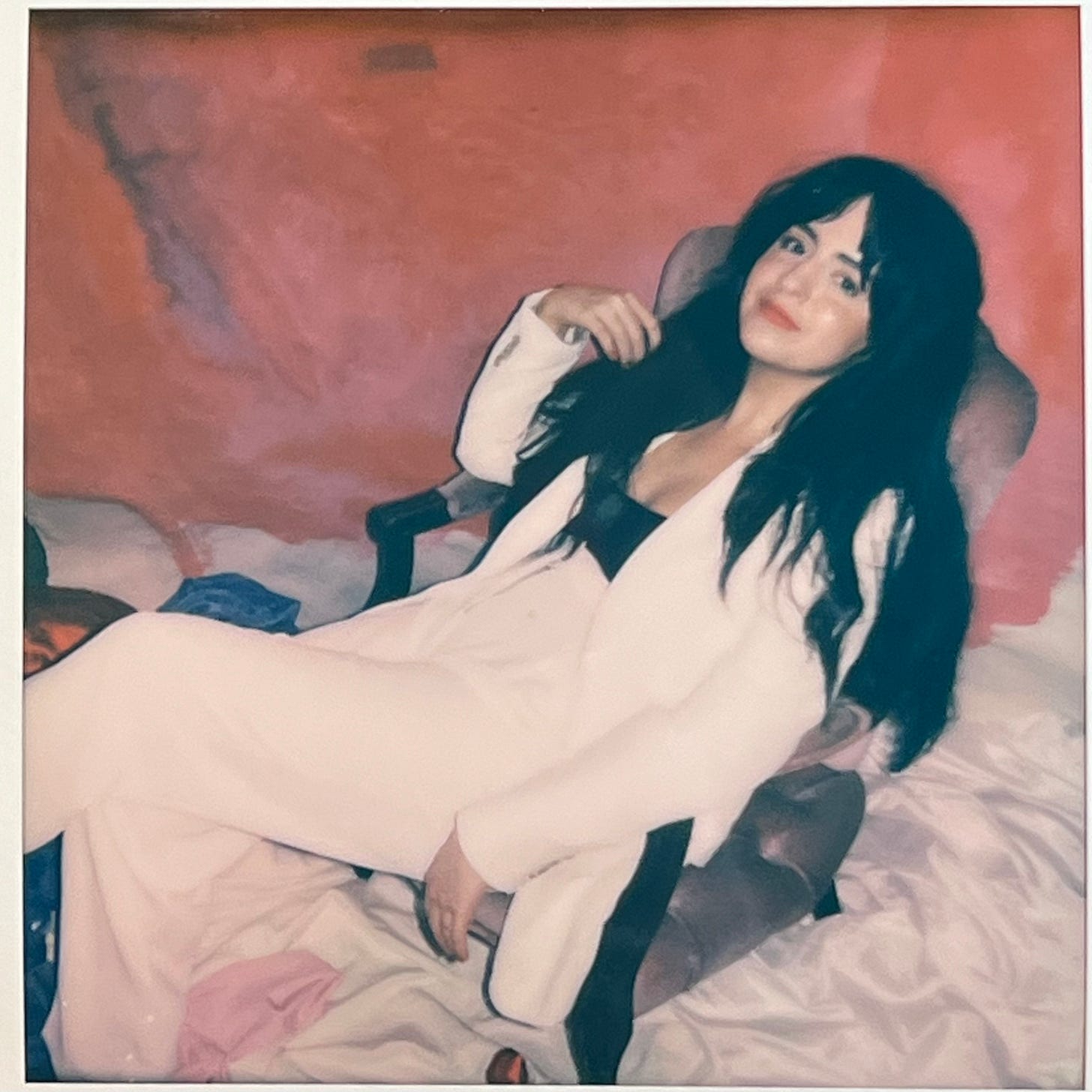
What are some of your favorite books or genres to read?
It really depends on when you’re catching me! For example, I would usually say that I’m drawn to literary fiction about complicated women, especially women who are artists, mothers, lovers, and others. But as more and more of my time is spent writing, less of my time is spent reading entire books, and so my book choices are usually more of a reflection of the topics I’m writing about than my favourite genres to read.
What are you reading right now?
Lately, I’ve been carrying around a stack of books featuring Baudrillard and Foucault because I’m trying to sort through some thoughts on simulations and poststructuralism. I’m also waiting for Leslie Jamison’s new book to arrive in the mail; I have a feeling I will drop everything to read it.
What ideas have you studied? Do you have any areas you consider your specialty?
I studied political and gender theory when I was in university, with a focus on feminist legal and political theory. I was particularly interested in feminist discourse theory, which led me into my Masters degree in legal studies. I read a lot of Marx and Foucault, and a lot of Angela Davis and Ruth Wilson Gilmore too, as I geared my coursework towards labour and reproductive rights for incarcerated people. While academia feels like another lifetime ago, my desire to learn new disciplines has only increased. Last year I started getting really into classic films; this year I can sense an itch to start painting again. I don’t know if I have many “specialties,” but I do hope to have as many outlets as I can develop in one lifetime.
What ideas are you exploring right now?
In the past, my newsletter has been a bit more personal and literary. And while I’m still very much interested in themes related to art, literature, online culture, and feminist theory, lately I’ve shifted into analyzing those themes through more of a cultural criticism lens. I’ve written about the ‘girliffication’ of trends as aesthetic alienation, about the cognitive dissonance surrounding celebrity plastic surgery, and about making sense of my life through the art of others. Mostly I just follow where my curiosity naturally takes me and then write about it so I don’t forget it, because I’m afraid of forgetting everything.
What is your reading method? Tell us about your reading routine, habits, quirks, anything you'd like to share.
I wish I could say I had one. When I first got back into reading for fun a few years ago, I was speeding through a book every two days, then posting reviews online immediately. Now, reading has become a lot more fractal of a hobby for me, since it has to share space with a lot of other things that have grown out of it, like the Solitary Daughter newsletter and paloma magazine. I have a book hoarding problem though, because I like to know a book is always readily available to answer any literary question I may have. It’s nice too to be able to choose a book one week that may relate to a topic I want to explore. A few months ago, I wanted to write about husbands and wives in art, so I watched a bunch of films, including Who’s Afraid of Virginia Woolf?, which led to me picking up an old used copy I’d found a few months ago. And I loved it! It suited the piece so well and tied it all together for me. So that’s one of the benefits to having a personal library.
When I’m done with a book, I’ll review my annotations, write down any memorable quotes, look up any words I’d circled, and then typically try to read a review or two from someone else, or maybe an interview with the writer about it to help me grasp the angles. Then I put it on my ‘read’ shelf (the far right shelf in the photo below) and I’ll revisit it when needed. A book isn’t “done” for me until it’s on that shelf.
What does closely reading mean to you? Do you consider yourself a "close reader"?
For me it’s about being present with a text, which is easier said than done, especially when I feel pressed for time or like my head is in a million other places. Ali Smith makes an offhand comment in Artful about how we treat books too lightly, how “We’d never expect to understand a piece of music on one listen, but we tend to believe we’ve read a book after reading it just once.” That stuck with me, and reinforced that reading closely is a practice that can only really be perfected over long periods of time, perhaps even entire lifetimes. My perspective on a book can change drastically between re-readings depending on what’s happened in my life between them, and I think that just highlights the beautiful thing about close reading, which is that it can still only be done anew with fresh eyes every time–we all come to it differently. So I think it’s just about developing a practice with reading, where you feel you’ve spent your time with it and allowed it to affect you. To consider what worked, what didn’t, what stuck with you, what didn’t, and what you might have learned about the craft while reading it.
“Ali Smith makes an offhand comment in Artful about how we treat books too lightly, how ‘We’d never expect to understand a piece of music on one listen, but we tend to believe we’ve read a book after reading it just once.’”
Do you prefer to read hardbacks, paperbacks, or digital copies? Why?
While I do appreciate digital reading for how easy it is to highlight or look up a word, I prefer to buy physical copies, and I carry around a stack of them everywhere just in case I have time to read. They may not be as practical, but I do love to be surrounded by stacks and stacks of books.
My dad was the same, he built this incredible home library entirely out of used books he’d gotten for trading his art with a local bookseller. I have a few of those books, and I bought a little stamp with his name to put on them. I like the idea that my future children could look through my shelves, that I could push them towards my favourites, ask their opinions on Duras or Cusk, or that they could open up a copy of a Camus book and see my dad’s name on it and feel a love of literature through three generations. Anyway, now I’m getting sappy. I like having physical copies.
What’s your annotation process like, while you read? Do you write in your books? Why or why not?
I use a Muji pen to mark passages in my books, but only once I have the sense that it’s a book I will want to keep. There are some books that are perfectly fine while I’m reading them, but if there isn’t any prose that moves me enough to highlight it for perpetuity, then I’ll give it away after finishing it without highlighting anything.
Lately, my routine is to circle any word I don’t know so I can come back to it at the end of the book. I’ll underline any great wording, and I’ll put a star beside a passage that was particularly moving. Then when I’m done with the book, I’ll flip through it again and revisit my favourite lines and any words I didn’t know (which I then add to an ongoing list of words I’ve learnt over the years).
“My perspective on a book can change drastically between re-readings depending on what’s happened in my life between them, and I think that just highlights the beautiful thing about close reading, which is that it can still only be done anew with fresh eyes every time — we all come to it differently.”
Tell us about your current writing project.
I write Solitary Daughter, a twice-weekly Substack newsletter which turned one in February. It’s all about art, culture, literature, and everything in between, kind of like me. I tend to take deep dives into cultural topics through the lens of literature, or vice versa. I also co-edit a casual art and literature magazine here on Substack called paloma magazine, which was named after my sister. It’s a space to encourage writers and artists of all experience levels to share their work.
Describe your writing process. Where do you start? How do you get focused?
The writing process is sort of always happening for me. I described it to a friend recently as just being open to the world. I have ADHD, so my brain is almost always on fire with things I want to say. When I’m inspired by something, it feels like a ping, like a radio transmission from some distant planet, and I have to write it down fast or I’ll lose it, even if I don’t always know what it means at first, until I’ve read it a few times.
It’s quite cold in the prairies these days, but when the weather is nicer, I love to start my writing days by walking my dog to grab an iced matcha. I’ve been realizing how important getting outside is for my mental health, but I also tend to get really sucked into creative hyper focus modes, which can be detrimental when they happen at the expense of actual human contact.
I do try as much as possible to shape my routine around the way I naturally prefer to work, so lately that’s meant that I write in my phone for most of the week, and then around Thursday/Friday I start to compile my notes, screenshots, and open tabs into the Digest, a bonus weekly issue for paid subscribers. This also helps me narrow my focus for the Sunday Letter, a long form essay that I publish for all subscribers on Sundays.
Do you do a lot of outlining before you write an essay for Substack? Or do you just dive into your first draft?
As mentioned above, my writing process often involves trying to narrow my focus. I take the stack of notes, screenshots, and articles that I’ve saved throughout the week, and I start to create a general outline, cutting and pasting my notes from across various documents and tabs. I’m obsessive with archiving, so any notes that aren’t used go into a massive document where I’ve compiled all of my writing over the past few years. It’s during this organizational process that I sort all of that week’s notes into a general order for an essay, leaving the only task that remains the actual writing itself, which is often less daunting by that point (especially because I tend to work through an argument subconsciously while completing these various other administrative tasks).
I am a perfectionist so I find it hard not to try and pour every possible argument into each essay to fend off possible critique, but it’s been funny to find that when I practice at letting go and killing my darlings more often, I’m often pleasantly surprised when I revisit the essay against in a day or two with fresher eyes and realize that it had a secret flow I hadn’t been aware of. In other words, I try to see the relationships between each paragraph in a visual sense, and connect them in that way, but I also have to admit that sometimes the best writing comes from getting out of my own way.
Describe your revision process. How do you go back into a piece of writing to revise or rework it? How do you handle large structural changes?
It’s interesting that revision and editing are separated in these questions because I think until now I’ve always considered them the same thing, in that part of revising involves editing, fine-tuning a section until I feel ready to go to the next.
Describe your editing process. What’s that like? Do you self edit? Reach out to friends?
I’ll try to look at things on the sentence-level, making sure the clauses connect, the arguments flow, that I’m not being redundant. It’s genuinely a pretty quick turn-around time; while I’m taking notes throughout the week and mentally turning over my arguments, the writing, editing, and revision process typically all happens on the same day, along with creating the graphics and publishing the post on social media, etc.
I will admit, as the newsletter grows, I do feel an increasing sense of anxiety over being vulnerable online. It’s a feeling I used to get after publishing each issue, but lately it’s been happening while writing as well. I’m reminding myself that it’s perfectly normal to have anxiety about sharing your innermost thoughts with strangers week after week, and that it’s a trade-off I’ll gladly accept in favour of having a creative space entirely my own.
What is the relationship between reading and writing, to you? Where are the overlaps? Where are the important distinctions?
They’re very entwined for me, even if they push and pull and one necessarily takes time away from the other. I find absorbing art and information to be just as important to the practice of making it. I can’t engage with a piece of art without wanting to get in there and learn how to make it myself. I imagine my relationship to both will change many times over the years, so I look forward to thinking about this question in another decade or so and seeing what has changed.
“I find absorbing art and information to be just as important to the practice of making it.”
What’s your current coffee or tea order?
I’m a sucker for a matcha latte.
Anything else you’d like to share about writing, reading, or annotating? (Favorite quotes, inspirational anecdotes, special memories, etc...)
In Exteriors, Annie Ernaux writes, “I am forever combing reality for signs of literature.” That’s been my writing mantra ever since; what else is there?
Lastly, for those who want to get to know you better, where can they find your work? Share your @ for anyone who wants to follow along!
I write Solitary Daughter on Substack, and I share updates on Instagram (@raquelalvarado).
Thank you so much for sharing all this amazing inspiration, Raquel. Can’t wait for the next Sunday Letter, which very quickly became one of my favorite pieces to read each week.
For more interviews and weekly close readings, subscribe to Closely Reading.





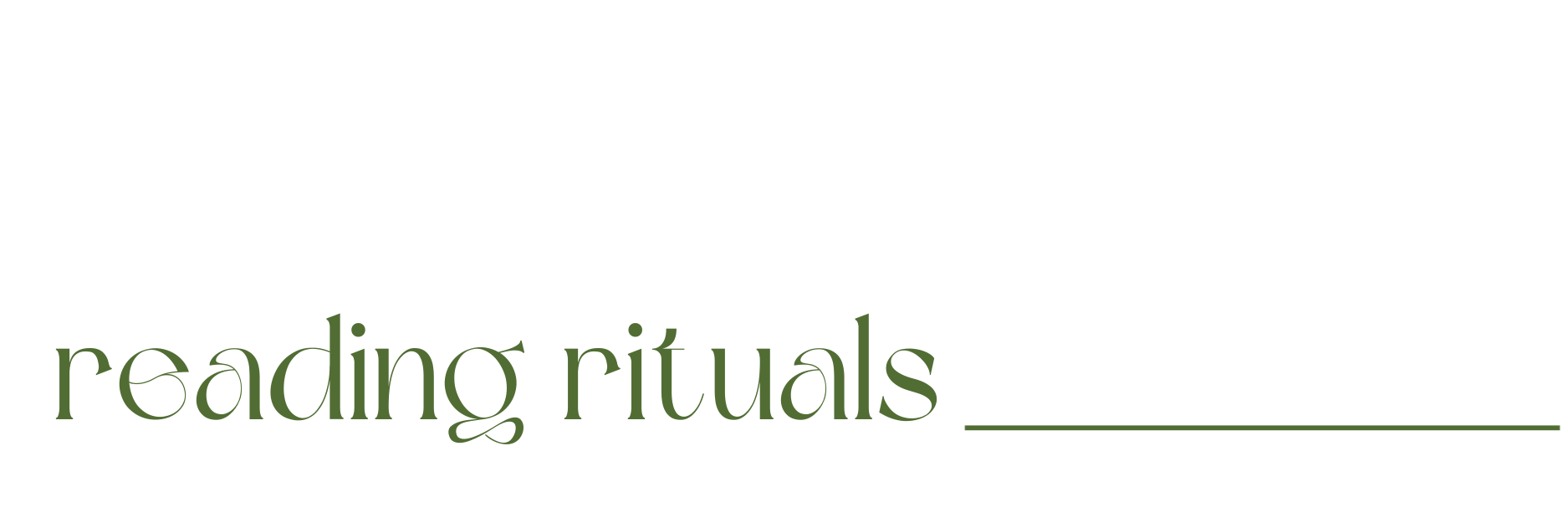
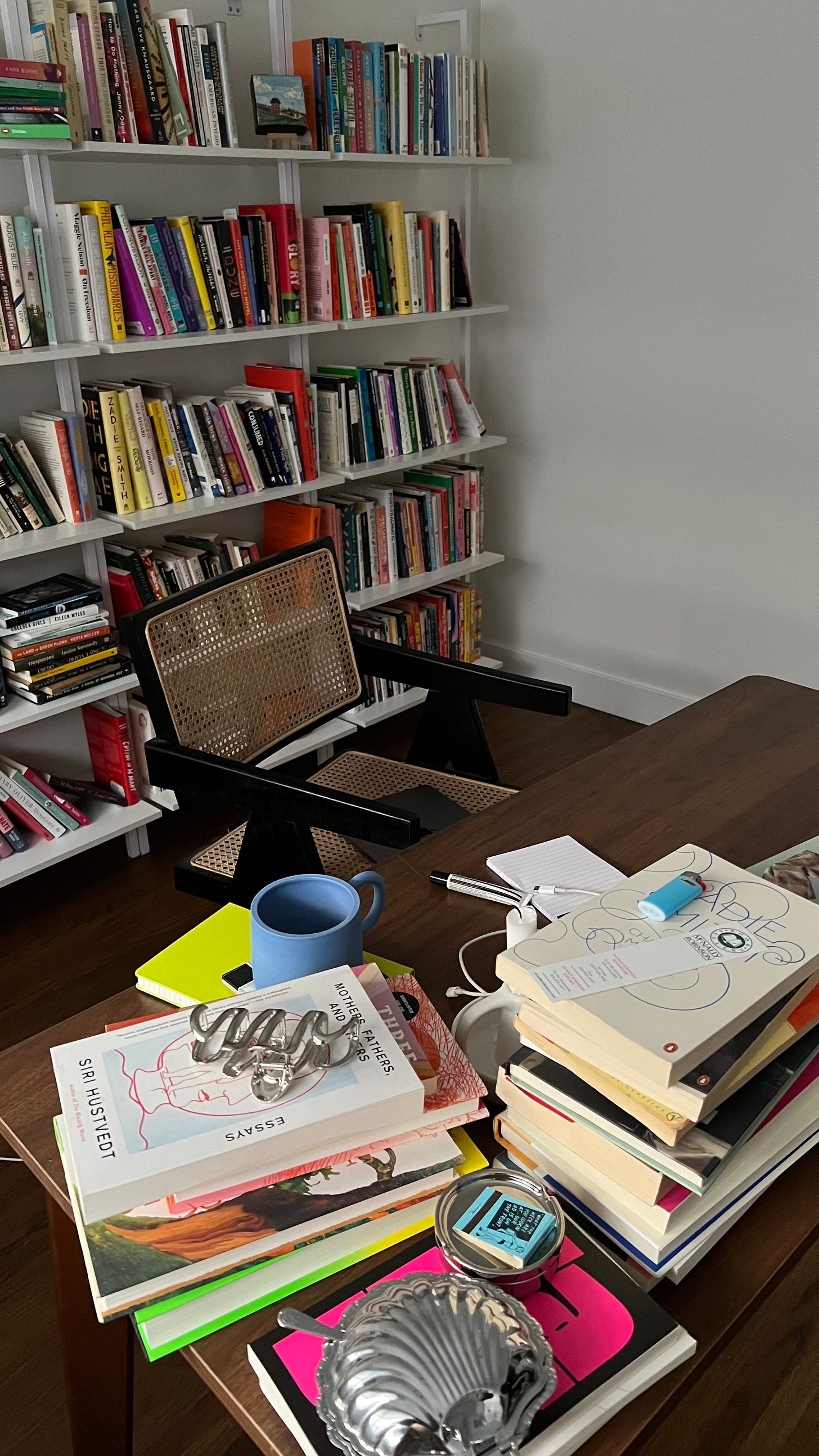

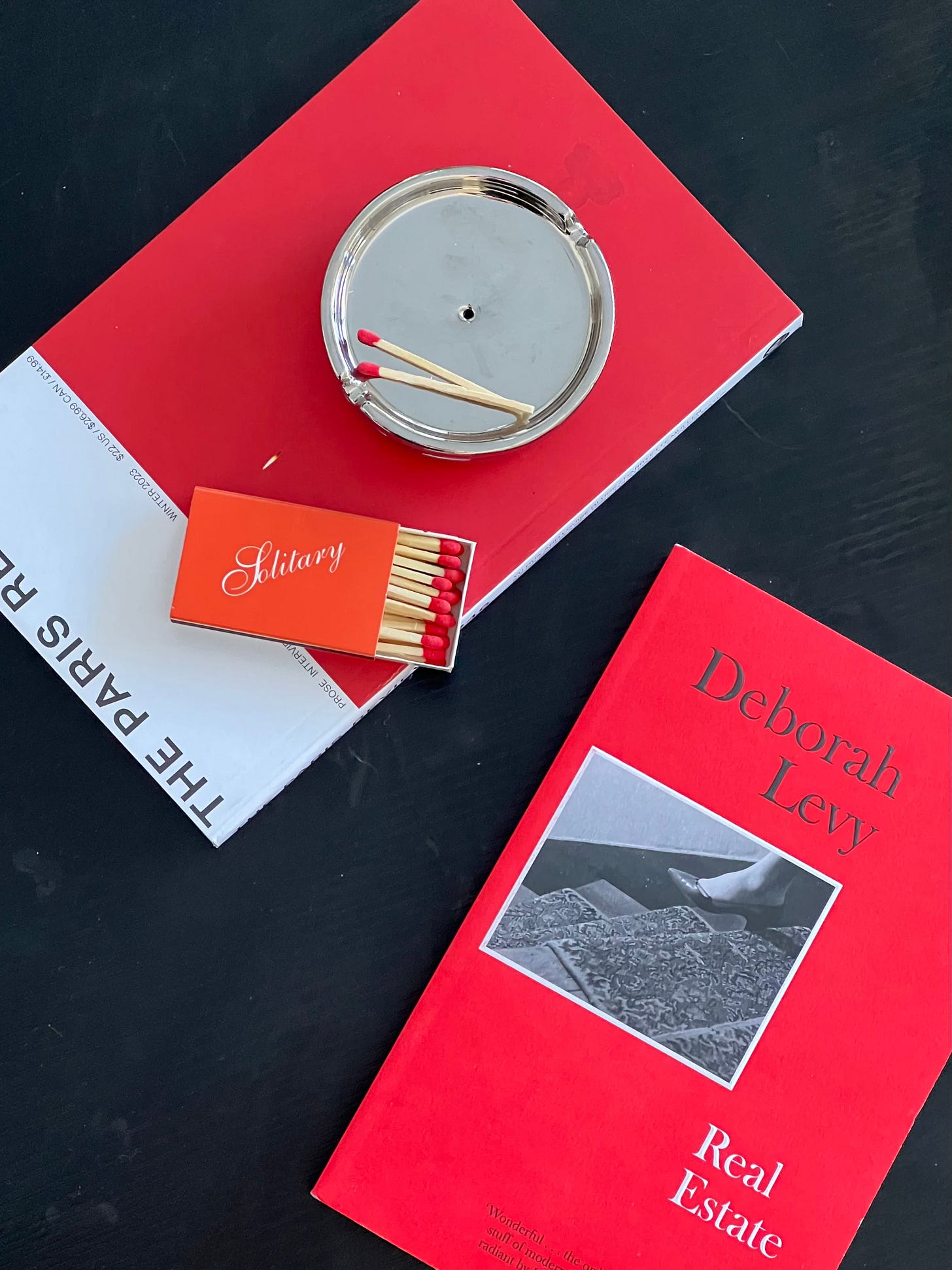
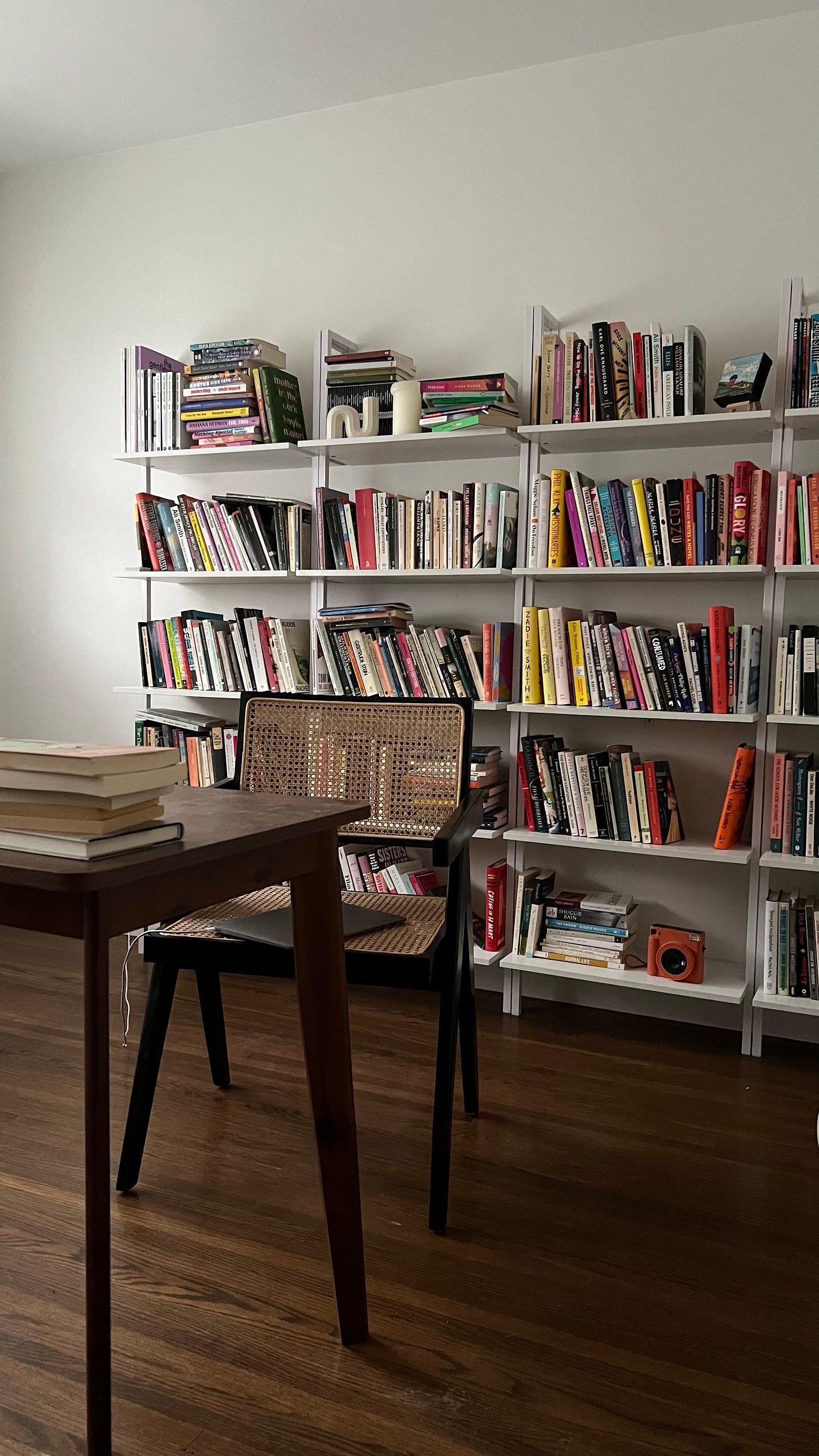

“Lately, I’ve been carrying around a stack of books featuring Baudrillard and Foucault because I’m trying to sort through some thoughts on simulations and poststructuralism”
ME TOO!
Thoroughly enjoyed reading this. What an inspiring woman she is. Thank you!
This was so delightful to read! Love both of your Substacks and it’s always so fun to get really, really detailed information about how someone reads, takes notes, and edits their work.
Also loved this articulation of what close reading means: “For me it’s about being present with a text…reading closely is a practice that can only really be perfected over long periods of time, perhaps even entire lifetimes.”